18 Jul Workforce Wednesday 2023: Key Sustainability Issues for Bakery Products and Equipment
Key Sustainability Issues for Bakery Products and Equipment
Sustainability is the new triple bottom line, composed of people, planet and profit. During Workforce Wednesday, Dr. Kevin J. Dooley, an expert on sustainable supply chain management and complexity science applications, highlighted the sustainability indicators used by CPG companies and retailers.
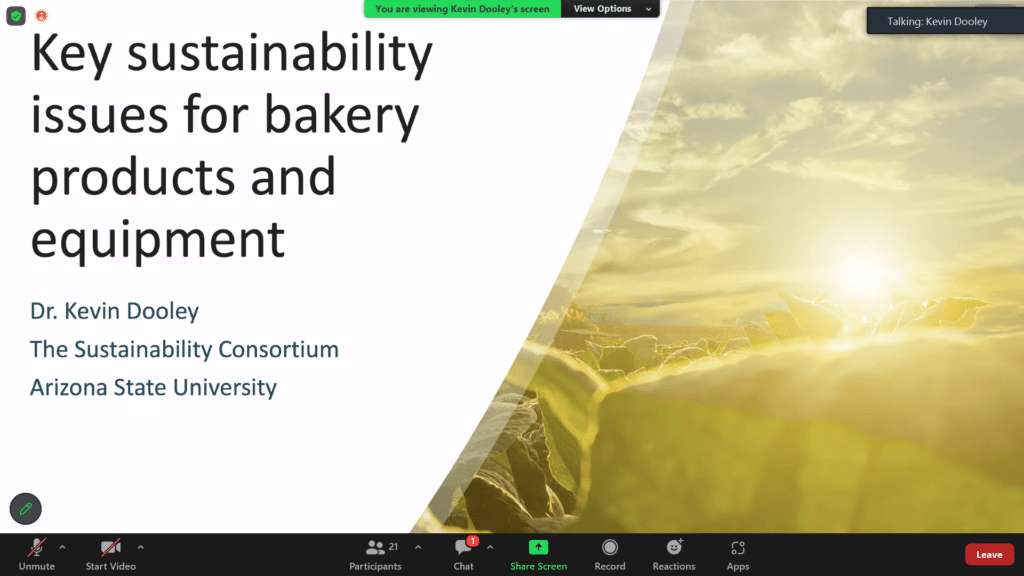
The growing need to be aware of the environmental and social hotspots associated with sustainability is prompting more organizations to look for a reliable way to measure performance. To provide continuity across industries and organizations, upstream and downstream, The Sustainability Consortium developed THESIS, a system designed for use by retailers and CPG companies to disclose sustainability performance related to ESG (Environmental, Social and Governance) and CSR (Corporate Social Responsibility) reporting.

THESIS provides a guide for retailers and suppliers to benchmark and quantify critical sustainability issues within consumer product supply chains using science-based insights and data-backed decision making. THESIS is a tool to chart a path to stronger performance through improvements in worker health and safety, reduction of food loss and waste generation and ingredient supply mapping. But there are still restrictions regarding the sharing of sustainability information up and down the supply chain.
Eco-Efficiency Vs. Risk
Eco-efficiency issues in sustainability are concerned with water, carbon, waste and material efficiency. Minimizing manufacturing impacts can come from the use of high-quality materials that are durable, repairable, maintainable and upgradeable, including awareness of conflict materials such as tin, tantalum, tungsten and gold. The use of recycled materials is a minor driver.
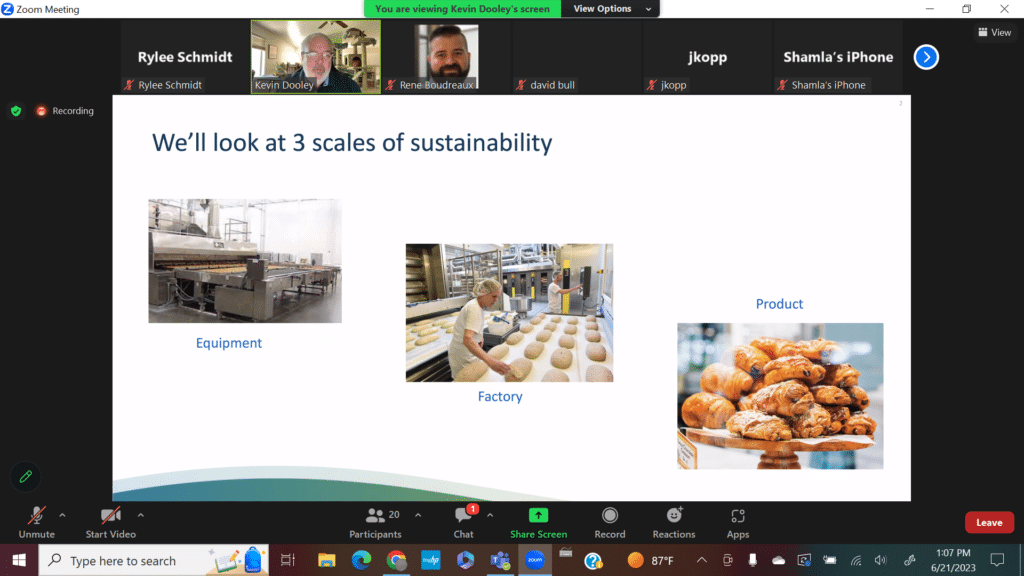
As these eco-efficiency issues are improved, costs can be further reduced through innovation to achieve appropriate ROI. Risk on the other hand can be extensive, arising in the form of biodiversity and land use, ecosystem quality, human health, worker safety, labor concerns and the greater community. Issues that arise in these areas influence consumer and investor perceptions, and leading companies in sustainability understand these are operational risks, not just reputational risks.
Leaders and Laggers
This range of sustainability issues will continue to grow with primary environmental issues of water use, packaging, recycling and reuse along with awareness of traceable, local, responsible and organic and non-GMO options in ingredient sourcing. Social issues include worker health and safety and labor rights and diversity, equity and inclusion issues.
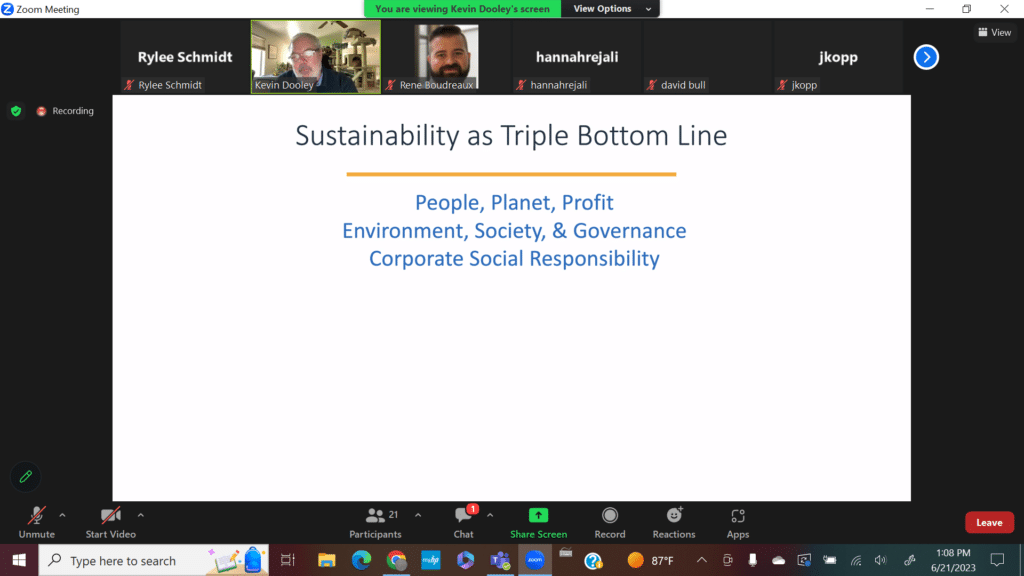
But wrapping one’s arms around such a big concept is far from easy, and only a small percentage are deemed to be leaders in the area of sustainability. This 10% minority views sustainability as a cost and revenue driver. They have access to markets and talent and are focused on sustainability both upstream and downstream. Sustainability projects require ROI, and a sustainability mindset is applied to all products and services. These minority leaders are often viewed by younger consumers as being more progressive than companies that aren’t engaged in sustainability practices.
40% represent the early majority. These organizations look to avoid risk and see opportunity in collective action. Projects conducted by this early majority have an internal focus and are centrally planned and executed with some emphasis on “green” products and services.
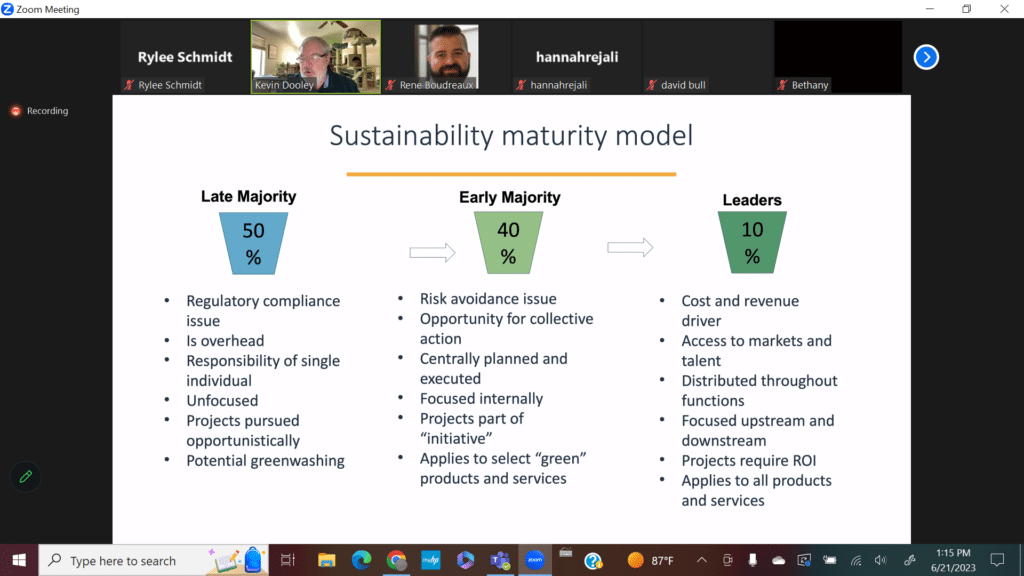
The remaining 50% round up the late majority. This group has not yet prioritized sustainability and participate solely from a perspective of regulatory compliance. Efforts within this group are typically not integrated and responsibilities concerning sustainability often lie with a single individual. Because projects are pursued opportunistically, there is a greater potential for greenwashing.
Concept to Reality
Dooley recommends starting the sustainability process by looking for low-ranging fruit in quality improvement. Often, the biggest impact is a surprise, so it’s important to assess before making a big investment in sustainability. Once these markers are identified and results become evident, it’s time to tell the story of what’s being done to improve sustainability in your organization.
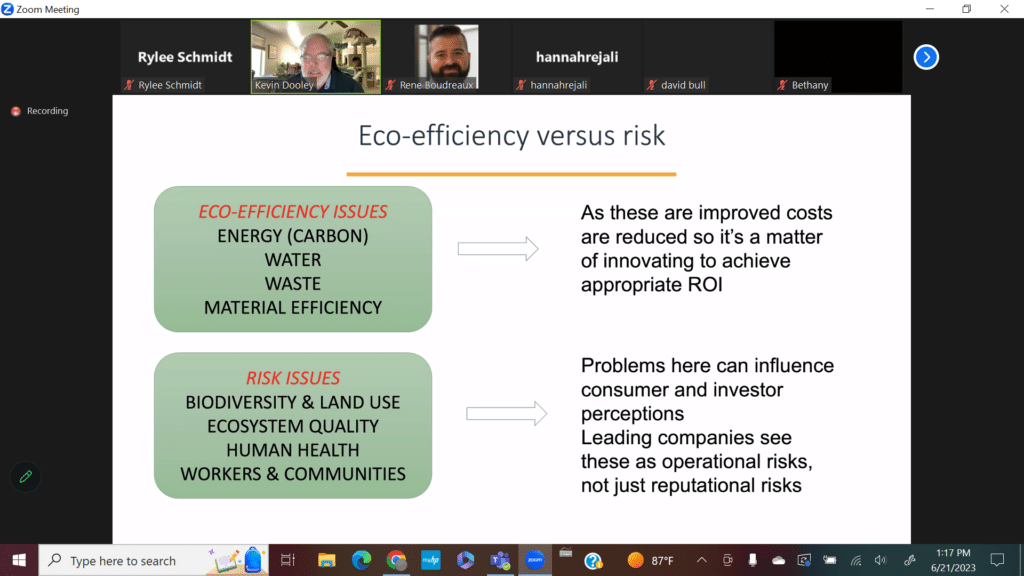
Meta Trends in Sustainability:
- Sustainability-marketed products – most growth in consumer markets
- Adoption of science based GHG (greenhouse gas) emissions goals
- Scope 3 (supply chain) GHG emissions – legislation pending in U.S. and currently in Europe
- Plastic packaging taxes and policy – will extend to B2B
- Packaging refill and reuse – hot trend in the CPG segment
- Sustainability moving from voluntary compliance to mandatory compliance
Presenter:
Dr. Kevin J. Dooley, Professor of Supply Chain Management, W.P. Carey School of Business, Co-Director of the Complex Adaptive Supply Networks Research Accelerator and Chief Scientist of The Sustainability Consortium, Senior Global Futures Scientist in the Julie Ann Wrigley Global Futures Laboratory
Sponsor:
Lallemand Baking





No Comments